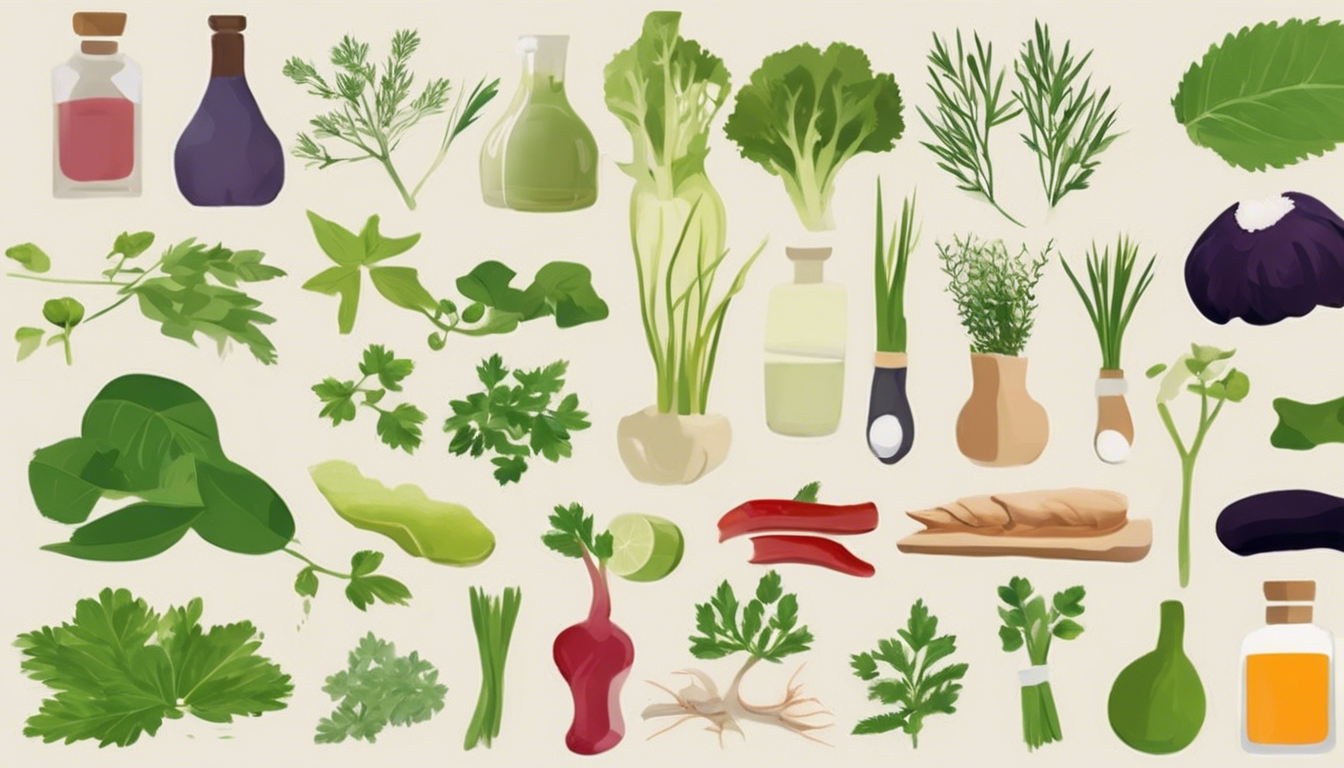Top Strategies for Effective Inflammation Reduction: Natural Remedies and Lifestyle Tips

Inflammation is a natural and essential part of your immune system’s response to injury and infection.
However, chronic inflammation can lead to various health issues, including heart disease, diabetes, and autoimmune disorders.
Understanding inflammation and learning effective strategies for inflammation reduction are crucial for maintaining overall health and well-being.
This article will guide you through the fundamental concepts of inflammation, explore natural remedies, dietary adjustments, lifestyle changes, the importance of exercise, and how mindfulness can play a critical role in combating inflammation.
Equip yourself with the knowledge and techniques to take control of your health and embrace a more vibrant life.
View Our Luxury Cold Therapy Products
Key Takeaways
- Understanding inflammation is crucial for effective management and reduction strategies.
- Natural remedies can provide significant support in reducing inflammation symptoms.
- A balanced diet rich in anti-inflammatory foods plays a vital role in inflammation reduction.
- Lifestyle modifications, including better sleep and regular exercise, can enhance inflammation control.
- Incorporating mindfulness and stress management techniques can further contribute to effective inflammation reduction.
Understanding Inflammation: What You Need to Know
Inflammation is the body’s natural response to injury and infection, acting as a protective mechanism that signals our immune system to heal and repair tissues.
However, when inflammation becomes chronic, it can lead to a host of health problems, including heart disease, arthritis, and even cancer.
Understanding inflammation and implementing strategies for inflammation reduction is crucial for maintaining optimal health.
This involves not only recognizing the symptoms of chronic inflammation, such as fatigue, joint pain, and digestive issues, but also making lifestyle changes that promote overall wellness.
Incorporating anti-inflammatory foods, engaging in regular exercise, managing stress through mindfulness practices, and ensuring adequate sleep can significantly contribute to reducing inflammation levels in the body.
By prioritizing inflammation reduction in your daily routine, you can empower yourself to lead a healthier, more vibrant life.
Natural Remedies for Inflammation Reduction
Inflammation reduction is a critical aspect of maintaining overall health, especially in a world where chronic inflammation can lead to a variety of health issues, including heart disease, diabetes, and even some cancers.
Fortunately, nature provides us with a plethora of natural remedies that can effectively lower inflammation without the side effects often associated with pharmaceutical options.
For instance, incorporating anti-inflammatory foods in your diet, such as leafy greens, berries, and fatty fish rich in omega-3 fatty acids, can significantly contribute to inflammation reduction.
Additionally, spices like turmeric, with its active compound curcumin, and ginger are known for their potent anti-inflammatory properties.
Other remedies include adequate hydration, regular physical activity, and stress management techniques such as yoga and meditation.
By adopting these holistic approaches to inflammation reduction, you can empower yourself to enhance your well-being and inspire others to pursue a healthier lifestyle.
'The greatest wealth is health.' – VirgilView Our Luxury Cold Therapy Products

The Role of Diet in Combating Inflammation
Inflammation reduction is a critical aspect of maintaining overall health, and a well-balanced diet plays a pivotal role in this process.
Chronic inflammation is linked to various health issues, including heart disease, diabetes, and arthritis.
By adopting an anti-inflammatory diet rich in whole foods, such as fruits, vegetables, whole grains, healthy fats, and lean proteins, you can naturally combat inflammation in your body.
Foods like berries, fatty fish, and nuts are particularly noteworthy for their high antioxidant properties, which help reduce oxidative stress and inflammation.
Additionally, minimizing the intake of processed foods and added sugars is essential, as these can trigger inflammatory responses.
Understanding the link between your dietary choices and inflammation empowers you to make informed decisions that lead to a healthier, thriving life.
With consistent and mindful eating habits, you can achieve significant inflammation reduction, putting you on a path toward enhanced well-being and vitality.
Lifestyle Changes to Support Inflammation Reduction
Inflammation reduction is more than just a medical buzzword; it’s a necessity for achieving a healthier lifestyle and preventing chronic diseases.
Embracing certain lifestyle changes can significantly aid in this endeavor.
Firstly, adopting an anti-inflammatory diet rich in fruits, vegetables, whole grains, and healthy fats like omega-3s can provide your body with the nutrients it needs to combat inflammation.
Foods such as berries, fatty fish, and nuts are particularly beneficial.
Moreover, engaging in regular physical activity not only helps maintain a healthy weight but also reduces inflammatory markers in the body.
Incorporating practices like yoga and meditation can further enhance your overall well-being by managing stress, which is another contributor to inflammation.
Prioritizing quality sleep is crucial as it plays a vital role in recovery and regulating inflammation.
Lastly, staying hydrated and minimizing alcohol and processed foods can contribute greatly to inflammation reduction.
By holistically addressing these aspects of lifestyle, you can empower yourself to lower inflammation levels and promote a healthier, more vibrant life.

Exercise and Inflammation: The Connection Explained
Exercise is widely recognized for its myriad benefits beyond just physical fitness.
One of the most compelling reasons to incorporate regular physical activity into your routine is its profound impact on inflammation reduction.
Inflammation is a natural response of the body to injury or infection; however, chronic inflammation can lead to a cascade of health issues, including heart disease and diabetes.
Research has shown that engaging in moderate-intensity exercise—whether it’s brisk walking, swimming, or cycling—can significantly lower levels of inflammatory markers in the body.
This happens as exercise promotes the circulation of anti-inflammatory cytokines while reducing the production of pro-inflammatory substances.
Moreover, regular physical activity aids in weight management, which is crucial since excess body fat, particularly around the abdomen, is linked to increased inflammation.
Therefore, by prioritizing exercise in your daily life, you not only enhance your overall well-being but also play a critical role in mitigating chronic inflammation, setting the stage for a healthier and more vibrant life.
Mindfulness and Stress Management Techniques for Inflammation Control
In today's fast-paced world, stress has become an all-too-familiar companion for many, manifesting in various forms such as anxiety, fatigue, and even physical ailments like inflammation.
Understanding the connection between stress and inflammation is vital for anyone seeking effective methods for inflammation reduction.
Mindfulness techniques, such as meditation and deep-breathing exercises, are powerful tools for stress management that can lead to significant health improvements.
By incorporating mindfulness into your daily routine, you can enhance your ability to cope with stress, thereby reducing the body's inflammatory response.
Engaging in practices like yoga, journaling, or simply immersing yourself in nature allows your mind to calm down, facilitating a reduction in stress hormones that contribute to inflammation.
By committing to these mindfulness strategies, not only can you achieve inflammation reduction, but you can also foster a greater sense of overall well-being.
Frequently Asked Questions
What is inflammation and why is it important to reduce it?
Inflammation is the body's natural response to injury or infection, but chronic inflammation can lead to various health issues, including heart disease and autoimmune disorders.
Reducing inflammation is crucial for improving overall health and preventing disease.
What are some natural remedies for inflammation reduction?
Natural remedies for inflammation reduction include turmeric, ginger, omega-3 fatty acids, and herbal supplements like Boswellia.
These remedies can help to lower inflammation levels in the body.
How can my diet influence inflammation levels?
A diet rich in anti-inflammatory foods such as fruits, vegetables, whole grains, and healthy fats can effectively lower inflammation.
Avoiding processed foods, sugars, and trans fats is also essential for reducing inflammation.
What lifestyle changes can I implement to reduce inflammation?
Key lifestyle changes for inflammation reduction include maintaining a healthy weight, quitting smoking, getting enough sleep, managing stress, and practicing mindfulness techniques.
How does exercise contribute to inflammation reduction?
Regular exercise helps reduce inflammation by improving circulation and supporting a healthy immune response.
It also promotes weight management, which is important for controlling inflammation.




